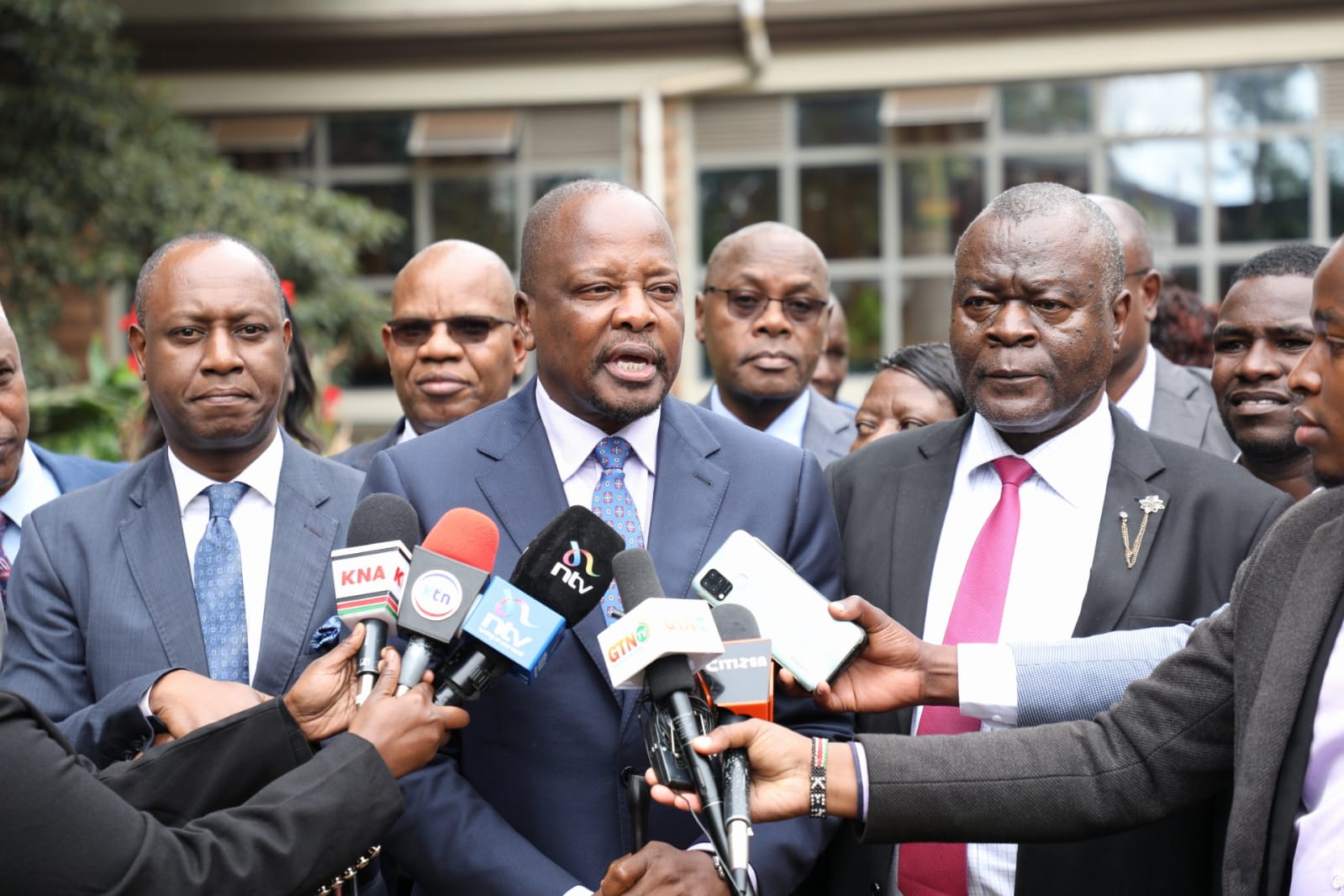

Agriculture Cabinet Secretary Senator
Mutahi Kagwe has unveiled a Sh10.8 billion Strategic
Plan for the Kenya Veterinary Vaccines Production Institute
(KEVEVAPI).
The plan aims to enhance livestock health, productivity and national food
security.
The five-year plan
(2023–2027), developed in line with the government’s Bottom-Up Economic
Transformation Agenda (BETA), seeks to modernise KEVEVAPI infrastructure,
accelerate vaccine production and expand market access both domestically and
regionally.
“Healthy livestock means healthy livelihoods,” Kagwe
stated on Tuesday during the launch in Nyeri.
“This Strategic Plan reflects the government’s
unwavering commitment to protecting our farmers, promoting food security, and
expanding Kenya’s presence in global animal health markets.”
The institute, which produces 90 per cent of KWS’s
internally generated revenue and funds approximately three-quarters of its
operating budget, will use the funds to double annual vaccine production from
35 million to 70 million doses.
The vaccines will target key diseases such as Foot
& Mouth Disease, Lumpy Skin Disease, and Peste des Petits Ruminants, ailments
that have continually threatened productivity and trade.
Under its previous
strategic plan (2018–2022), KEVEVAPI produced over 177 million vaccine doses, exporting
about 11.3 million doses to neighbouring countries.
The new plan includes upgrading production facilities
at Embakasi and Kabete to meet international Good Manufacturing Practices
(GMP), to serve regional markets including Rwanda, DRC, Uganda,
Burundi, Tanzania, Djibouti and Mali.
Kagwe emphasised that the
initiative not only enhances animal health but also boosts the country’s global
competitiveness.
"Kenya is a vaccine producer… the money will come
from the business of selling vaccines globally,” he said.
“The modernisation of KEVEVAPI and increased
vaccine production will ensure the safety of our livestock and public health,
boost exports and increase productivity among our farmers in rural communities.”
The livestock farming sector, valued at Sh235 billion annually and
contributing about 12 per cent of GDP, relies heavily on this boost.
However, chronic disease outbreaks have hindered full growth, making the Strategic Plan “a vital framework to ensure the country is always prepared for effective disease management.”













